CVS stopped selling tobacco on October 1, 2014.
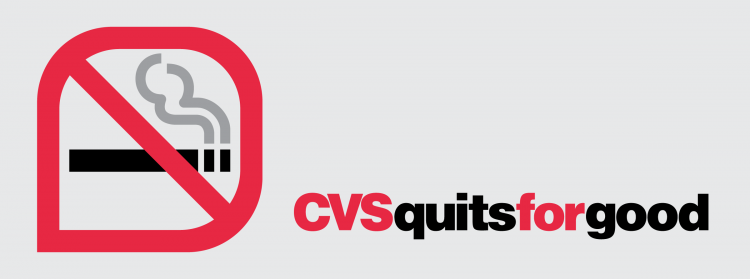 In that moment, a Fortune 100 company stepped an entire foot, and not just a toe, into public health waters. [I covered that event with joy here in Health Populi as soon as it was announced months earlier on February 14th].
In that moment, a Fortune 100 company stepped an entire foot, and not just a toe, into public health waters. [I covered that event with joy here in Health Populi as soon as it was announced months earlier on February 14th].
The company re-branded from CVS/pharmacy to CVS Health. That was a watershed moment in U.S. public health history, a wave that has continued to grow over the past six years to this moment, in the thick of the coronavirus pandemic.
This week’s news that Best Buy will require shoppers to wear masks inside the store is another example of retailers taking on public health missions.
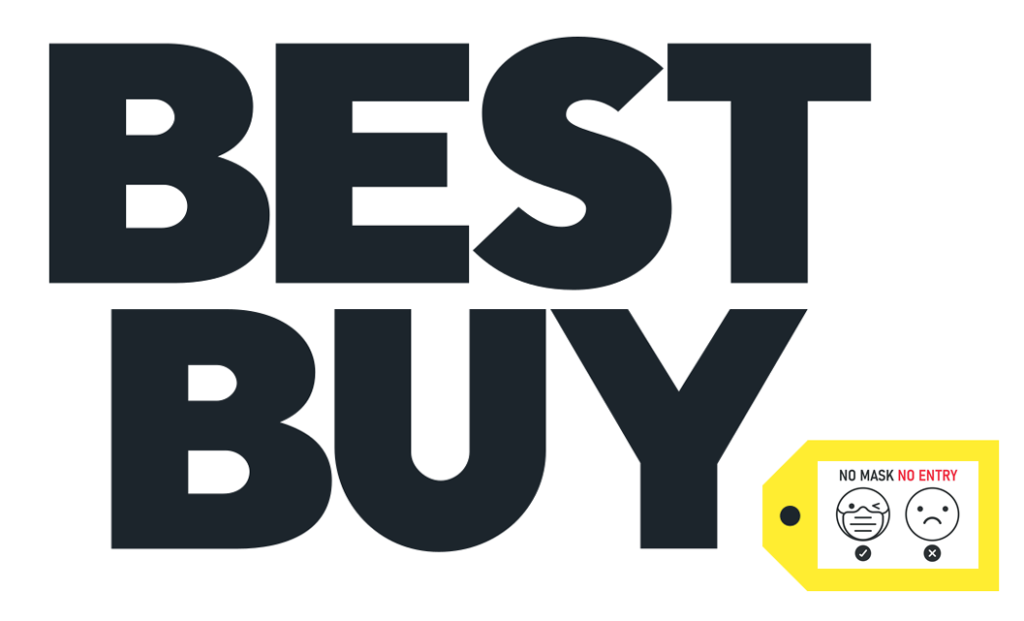 Today, Walmart and Sam’s Club made the decision to compel shoppers to wear masks, nationwide, in its 5,000+ stores. Before that decision was made, about 65% of the stores had already has mask-mandates in place due to the State governors’ instructions. Just two days ago, CEO Doug McMillon told David Rubinstein on Bloomberg’s Leadership Live that this concept was, “obviously something that’s on our minds.”
Today, Walmart and Sam’s Club made the decision to compel shoppers to wear masks, nationwide, in its 5,000+ stores. Before that decision was made, about 65% of the stores had already has mask-mandates in place due to the State governors’ instructions. Just two days ago, CEO Doug McMillon told David Rubinstein on Bloomberg’s Leadership Live that this concept was, “obviously something that’s on our minds.”
Best Buy and Walmart join other retailers who were earlier adopters of mask mandates in their stores across the U.S. These companies Costco, Dollar Tree, H-E-B grocers, Starbucks, and Verizon, among other brick-and-mortar stores shown in the list below, curated by Quartz published on July 14.
The Retail Industry Leaders Association (RILA) has been actively supporting its stakeholders through the COVID-19 pandemic. Already challenged by ecommerce and consumers’ growing demands for convenience and access, retail has been dramatically hard-hit in the crisis, from large luxury department stores to Mom & Pop shops on Main Streets around the country.
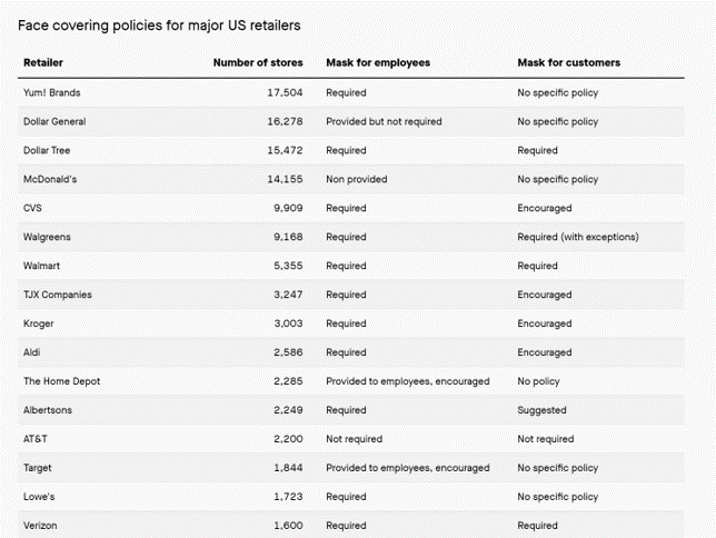 On July 6th, the President of RILA, Brian Dodge, wrote a letter to the U.S. State Governors, asking for a uniform approach across the states that would eschew the current patchwork quilt of local mandates. Specifically, RILA asked governors to compel the wearing of masks. noting that leading retailers were requiring employees to wear face coverings during their shifts, “encouraging customers to do the same.”
On July 6th, the President of RILA, Brian Dodge, wrote a letter to the U.S. State Governors, asking for a uniform approach across the states that would eschew the current patchwork quilt of local mandates. Specifically, RILA asked governors to compel the wearing of masks. noting that leading retailers were requiring employees to wear face coverings during their shifts, “encouraging customers to do the same.”
The key ask in the letter was:
“We urge every governor to require consumers who are not encumbered by a medical condition to wear masks when shopping or in public spaces.”
In early May, RILA launched a Blueprint for Safe Shopping to guide policymakers and business to inform through the phase reopening of the U.S. economy.
Health Populi’s Hot Points: As “ebusiness” and, more recently, “digital transformation” have become mainstream for organizations, it’s become a common mantra to say that, “all companies are tech companies.” [One of the earliest observations of this in my experience came from EY’s Tax Insights in this essay, All companies are becoming tech companies.”]
In the age of COVID-19, it’s morphed into, “all companies are health companies.”
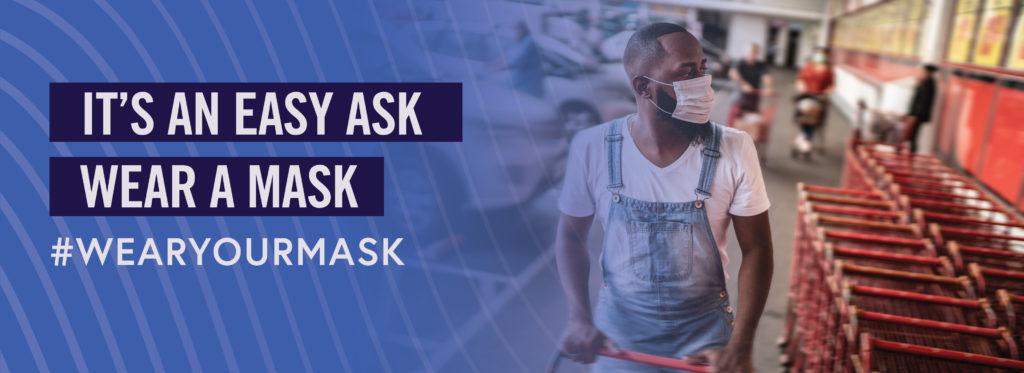 Around the U.S. where the coronavirus has been tamed in terms of case counts, workers who were mandated to #WorkFromHome have started to #ReturnToWork, as the twitter handles are trending. People are facing new work flows as they board mass transit to get to their jobs, masked and distanced, enter their buildings facing daily temperature checks, and find their desks at least six feet apart from their colleagues. They’re wearing masks as they walk from that desk to the loo, and are getting used to the communal coffee-making area shut down, compelling workers to bring their own coffee into work. (Of course, that visit to Starbucks now requires a mask walking into the door, reinforcing face covering behavior).
Around the U.S. where the coronavirus has been tamed in terms of case counts, workers who were mandated to #WorkFromHome have started to #ReturnToWork, as the twitter handles are trending. People are facing new work flows as they board mass transit to get to their jobs, masked and distanced, enter their buildings facing daily temperature checks, and find their desks at least six feet apart from their colleagues. They’re wearing masks as they walk from that desk to the loo, and are getting used to the communal coffee-making area shut down, compelling workers to bring their own coffee into work. (Of course, that visit to Starbucks now requires a mask walking into the door, reinforcing face covering behavior).
RILA’s letter to Governors begs the question: “where is the public in public health?”
Since CVS’s quitting tobacco sales, there have been other milestones on this retail-public-health mission. The opioid crisis launched retail pharmacy in a public health role. In the advent of shooting tragedies in El Paso, Midland, and Odessa TX, Southaven MS, and Dayton OH, Walmart changed its policy on selling firearms in its stores. [Read more here in Health Populi in a post titled, Walmart’s Growing Footprint in Healthcare Public Health, From Guns to Mental Health and Gardens.]
Without leadership, retail is taking on the tough job of wrangling retail shoppers into health citizens, doing the hard work of public health. As Quartz put it in their coverage, “Big retailers are establishing the COVID-19 policies the government won’t.”
Private sector retailers are increasingly playing this tough-love role.


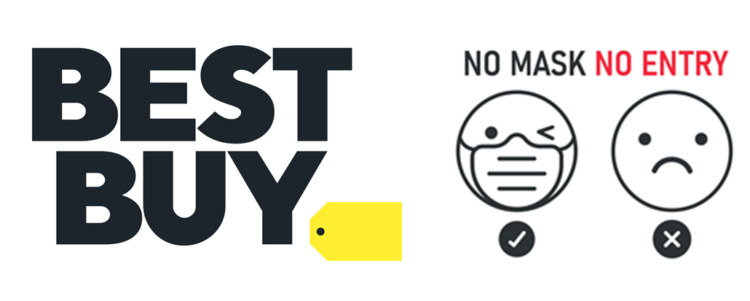


 Thank you FeedSpot for
Thank you FeedSpot for